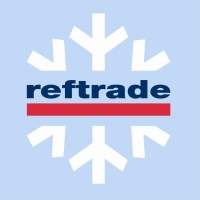People-focused health and safety, creating a culture whereby we manage risk, reward good decision making and celebrate sensible choices and behaviours in those that strive to go above and beyond, is of paramount importance to the North Sea oil and gas industry. Driving high standards and not compromising production people has become every operator’s greatest asset, so the suggestion that they are now looking to safeguard and standardise the transportation of food offshore is a notion welcomed by many.
Reftrade UK managing director Greg Spence feels it is the responsibility of the whole supply chain to help the industry raise welfare, health and safety standards through enhanced offshore food transportation regulations.
Having worked in the hospitality industry for ten years, in the offshore refrigerated unit market for seven and now a global specialist in the sale and lease of both new and used refrigerated containers and portable units at Reftrade UK, I’ve seen the industry and regulations change over the years.
Standards for the transportation of food, specifically in the oil and gas industry, are different the world over. Factors such as climate, distance, logistics and legislation / law have all to be taken into account when considering what the best solution is for a particular client.
Although transportation of food offshore in the North Sea sector is generally very good, the regulations and therefore standards can be unclear.
According to a 2011 fact sheet prepared by the Health and Safety Executive (HSE) titled, ‘Offshore Food Essentials,’ which seeks to provide guidance to offshore dutyholders (owners, operators and contractors) to aid compliance with the food safety element of the Offshore Installations and Pipeline Works Regulations 1995, the Offshore Installations and Wells Regulations 1996 (DCR) and the Control of Substances Hazardous to Health Regulations 2002 (COSHH), to protect workers’ health, delivery temperature standards for frozen goods should be below -12 ºC and preferably below -18 ºC. Chilled goods should be below 5 ºC.
It then goes on to say that ‘delivery in refrigerated containers is preferred’. Further to this, the guidance states that procedures should be in place to ‘monitor and record the temperatures of delivered, prepared and stored food.’
This is where the primary issue regarding food transportation arises: there is no standard rule or law governing the transit of food offshore. It is, however, clear that all food transported offshore should be refrigerated to ensure freshness and to reduce the risk of food poisoning and food-borne diseases. If food deliveries are incorrectly monitored and do not comply with the HSE’s guideline temperatures, then food would have to be discarded adding to waste and the operator’s costs.
To put that in perspective, the reality of operating in the North Sea is that, with so many months of cold weather, many food types can be transported in metal containers without issue. However, what we are finding more and more is that our clients themselves are striving to exceed the existing standards and any simplified and consistent regulations in the future would certainly be of value throughout the supply chain, not least to the end user.
More often than not the sole emphasis is put on the offshore catering company and the standards that they operate within, when in fact it is the whole supply chain that must hold safety as paramount, from supplier of the transportation units to the end operators.
Upon discussion with Stuart McBride, owner of Trinity International Services, a multi-faceted service company which has grown from a background in catering and hotelkeeping services to now offer an extensive range of tailored life support and facilities management services, he supported the view that standards need to be formally raised, saying, "We still find it very surprising that in an industry which has a fantastic safety culture this does not extend to legally required controls offshore for food in transit."
A joint report by the International Petroleum Industry Environmental Conservation Association (IPIECA) and International Association of Oil & Gas Producers (OGP) states, ‘Food and water safety is of paramount importance to the effective functioning of the oil and gas industry. All sectors of the industry, from frontier exploration and production locations to retail operations, are potentially at risk.’
Refrigerated units themselves must adhere to strict safety standards, Reftrade UK offering dedicated refrigeration facilities that exceed both British and European safety standards for the offshore and onshore markets.
In an industry with such a strong safety and people focused culture, it is the duty of the whole supply chain to raise the standards of food transportation offshore, we must focus on providing solutions, advising and supporting duty holders to make the right and most informed choices for their people and the food they provide them.
With over 30 different product designs, Reftrade UK offers an ideal solution for all temporary or permanent cold storage requirements. Using an integrated business model, the company can supply, deliver and advise on rental and sales of all DNV 2.7-1 / EN 12079 storage reefers including manufacturing for bespoke projects and zoned units.

